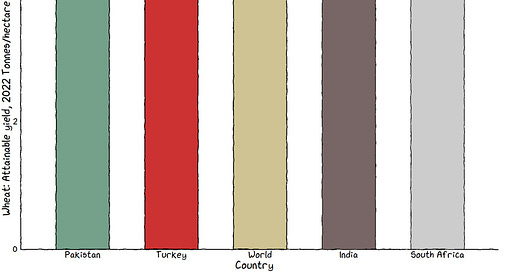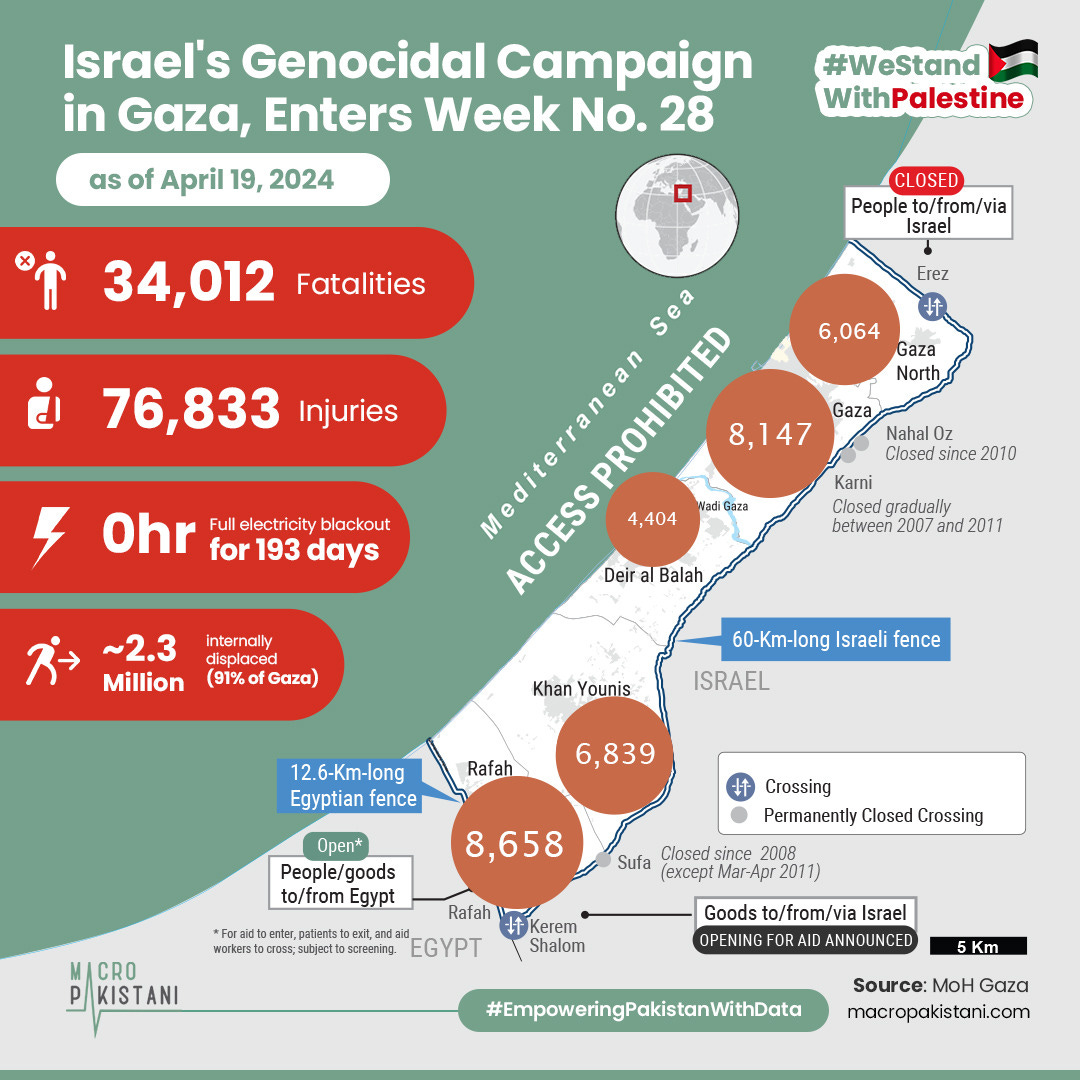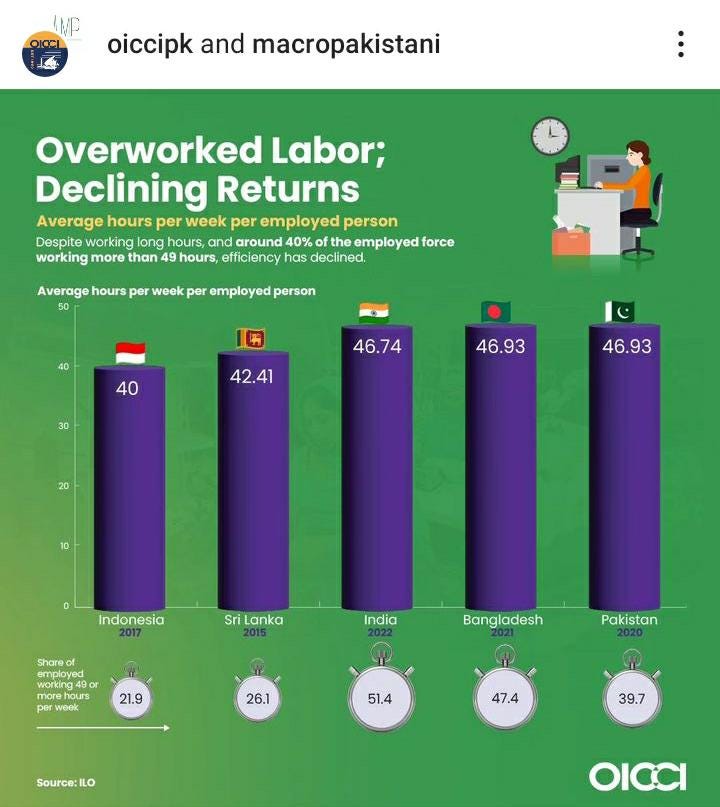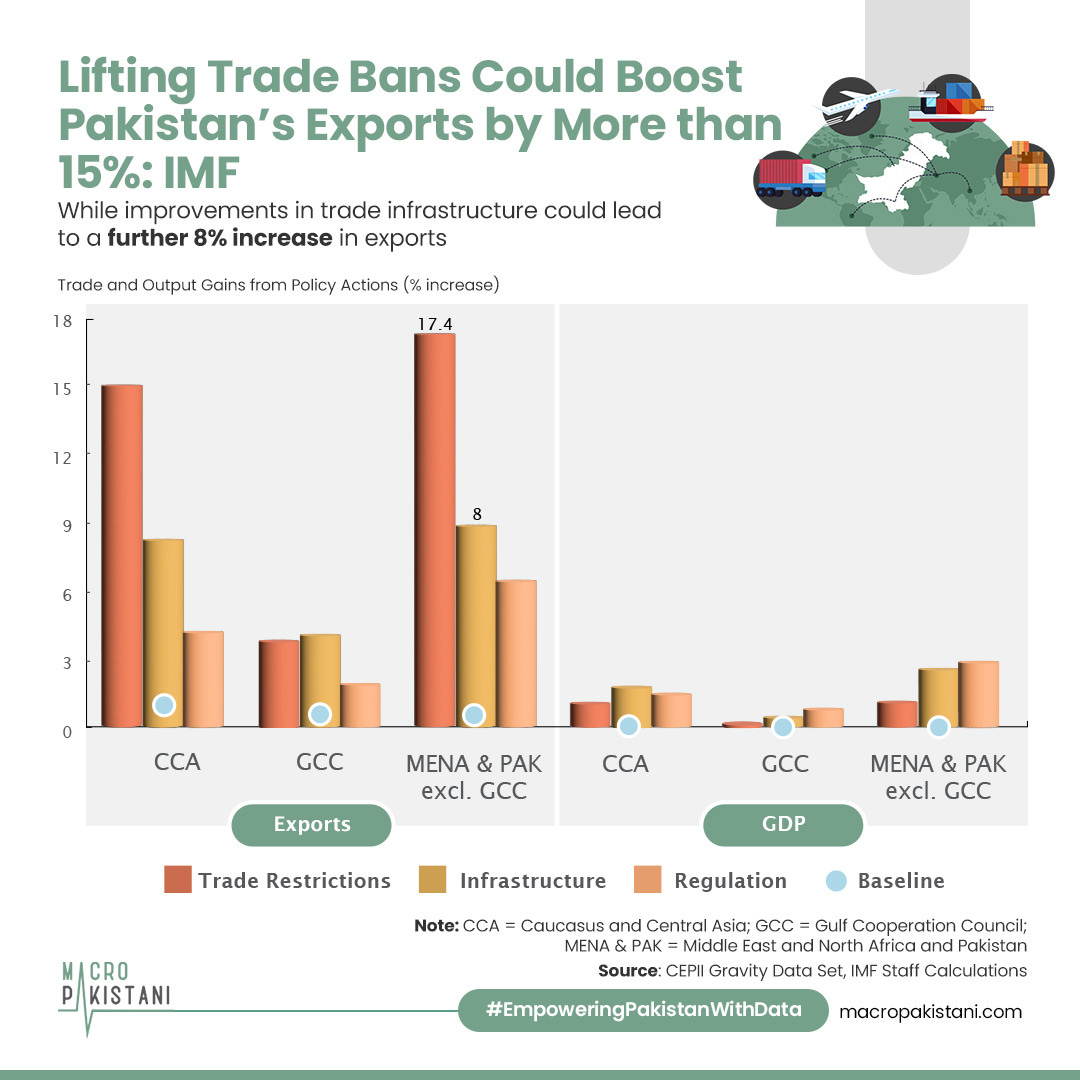Price-Setting; A Job for The Government?
Improving Pakistan's agriculture sector hinges on utilizing the right seeds and machinery, capable of increasing per-acre yields by up to 50%.

Despite the evident need for industrialization and a move towards specialized production, Pakistan can not overlook its agriculture sector. After all around 37% of the population still relies on agriculture to earn a livelihood. At the same time, Pakistan’s food security is at peril due to rising climate change dangers and stagnancy in the structure of its agriculture sector. There are various aspects of the issues underlying the country’s inability to support its farmers and associated stakeholders, including quality and diversity issues. Due to inherent characteristics, expansion in the sector may not be as feasible as enhancing its current capabilities.
Pakistan continues to lose over USD 1 billion yearly, as a result of supply chain and quality issues. Is this affordable?
An ongoing research by the Mahboob ul Haq Research Centre at LUMS posits that farmers typically receive less than half of the price paid by consumers for various agricultural products, despite minimal value addition from the farmgate to the retail level. This is due to various middlemen who offer storage, transport, credit, and even agricultural advice to small-sized farmers who are dependent on them. Hence, it is quite intuitive to propose enhancing farmers’ capabilities by providing direct credit can ensure that rent-seekers don’t benefit from the traditional market.
Unless Pakistan supports its human resources, particularly small landholders and farmers in this case, there is little hope for a transformation in the economy. In addition to credit, providing education and knowledge to farmers is crucial to increasing agricultural productivity. Modernizing the supply chain and improving inputs is a responsibility of the government in addition to crucial support from the private sector.
Rather than pursuing ineffective interventions like attempting to control prices, it might be better for the government to promote entrepreneurship, competition, and private investments in the traditional space.
Macro Pakistani is also collaborating with Pakistan Food Systems Dashboard to explore and present the challenges being faced by Pakistan's agriculture and food sector. Keep following our Instagram account to view the upcoming collaboration!
GRAPHIC
A recent report by the United Nations Relief and Works Agency for Palestine Refugees in the Near East (UNRWA) has unveiled a grim reality: over 1% of Gaza’s population has perished at the hands of the Israeli Occupation Forces (IOF).
The toll of the ongoing aggression in Gaza paints a dire picture of loss and devastation, with UNRWA lamenting on Twitter: “Life is draining out of Gaza at terrifying speed.”
With thousands of lives lost and countless more displaced, the human and material toll of Israel’s merciless genocide continues to mount!
Pakistan's agricultural sector faces significant challenges, with annual production of corn, wheat, and rice valued at around Rs. 3 trillion, yet suffering a Rs. 279 billion loss due to quality, supply chain, and storage issues.
Over the past decade, Indonesia, India, and Bangladesh have consistently witnessed improvements in labor productivity, contrasting with Pakistan's decline relative to its Asian counterparts.
Despite Pakistan's workforce putting in long hours, with approximately 40% working beyond 49 hours per week, efficiency has waned.
Data Visualization & Marketing Partner: Brand Nib
Visit: https://macropakistani.com/advertise/
Grateful for the ever-growing list of collaborators!
About Us: Macro Pakistani is a data-driven research platform that aims to provide a basic understanding of Pakistan’s economy. If you have an interest in contemporary news but are currently overburdened with sensationalism and specialized vocabulary, we are the platform for you.
How are we doing? Please send us any questions, comments or suggestions by replying to this email.







